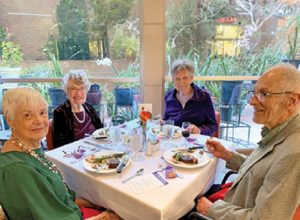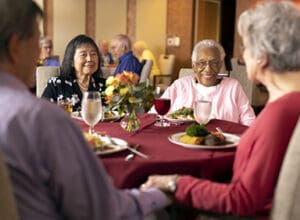
As we grow older, it’s not uncommon to experience a decline in appetite. This can be a significant concern for aging adults, as proper nutrition is essential for overall health and well-being. In this comprehensive guide, we’ll explore the common causes of decreased appetite in seniors and provide you with practical strategies to boost your food intake and nourish your body.
Understanding the Decline in Appetite in Aging Adults
As we age, our bodies go through various physiological changes that can contribute to a decreased appetite. These changes may include:
- Altered taste and smell perception: The senses of taste and smell often diminish with age, making food less appealing and reducing the enjoyment of eating.
- Reduced digestive function: The production of digestive enzymes and stomach acid can decrease, leading to feelings of fullness or discomfort after eating.
- Medication side effects: Certain medications commonly prescribed to older adults, such as antidepressants, blood pressure medications, and pain relievers, can have appetite-suppressing side effects.
- Chronic health conditions: Conditions like diabetes, cancer, and Alzheimer’s disease can significantly impact appetite and food intake.
- Social isolation and depression: Loneliness and lack of social engagement can decrease the desire to prepare and enjoy meals.
The Importance of Proper Nutrition for Seniors
Maintaining a healthy appetite and adequate food intake is crucial for aging adults. Proper nutrition helps to:
- Maintain muscle mass and strength, essential for maintaining independence and mobility.
- Supports a robust immune system, thereby decreasing susceptibility to infections and illnesses.
- Builds stronger bones to reduce fracture risk.
- Improve cognitive function and mental well-being.
- Manage chronic health conditions and aid in the recovery process.

Addressing the decline in appetite and ensuring sufficient nutrient intake can enhance one’s overall quality of life and help one maintain independence for longer.
Common Causes of Decreased Appetite in Aging Adults
- Dental problems: Issues such as ill-fitting dentures, tooth loss, or gum disease can make chewing and swallowing food uncomfortable or painful.
- Difficulty with grocery shopping and meal preparation: Mobility limitations, lack of transportation, or cognitive impairments can make it challenging to acquire and prepare nutritious meals.
- Reduced sense of hunger and thirst: As we age, our bodies may become less responsive to the signals that indicate hunger and thirst, leading to a decreased appetite.
- Loss of interest in cooking and eating: Aging adults may find preparing meals less appealing, especially if they live alone or have lost their passion for cooking.
Strategies to Increase Food Intake in Aging Adults
To address the decline in appetite and ensure proper nutrition, consider implementing the following strategies:
- Create a Supportive Eating Environment
- Establish a comfortable and inviting dining area with good lighting and minimal distractions.
- Encourage social interaction during mealtimes, such as sharing meals with family or friends.
- Experiment with different presentation techniques, such as colorful plates or garnishes, to make the food more visually appealing.
- Assist with meal preparation, grocery shopping, or transportation to the grocery store, if needed.
- Incorporate Nutritional Supplements
- Talk to your doctor about appetite-stimulating medications like megestrol acetate or dronabinol.
- Add high-calorie, nutrient-dense supplements like protein shakes or smoothies to your daily routine.
- Explore using vitamin and mineral supplements to ensure you’re meeting your nutritional needs.
- Engage in Social Activities
- Participate in community events, senior centers, or social clubs that offer opportunities for shared meals and social interaction.
- Invite friends or family members to join you for meals, as the presence of others can stimulate appetite and encourage longer mealtimes.
- Explore the possibility of meal delivery services or community-based meal programs that provide nutritious meals and social engagement.
- Incorporate Exercise into Your Routine
- Regular physical activity can improve both your appetite and overall health. Enjoyable activities like walking, swimming, or gentle exercise are great starting points. For tailored advice, consult with a healthcare provider or physical therapist.
- Consider incorporating strength-training exercises to maintain muscle mass and support your overall health.
Implementing these strategies can help you take proactive steps to boost your appetite, improve your nutritional intake, and enhance your overall quality of life as an aging adult.
Empowering Aging Adults to Improve Their Appetite
A healthy appetite is crucial for older adults to maintain overall well-being. Experiencing a decline in appetite is common but doesn’t have to be a constant struggle. By understanding the factors influencing appetite and adopting practical solutions, you can restore your nutritional balance and revitalize your body and mind.At Webster House, we are independent living in Palo Alto, CA, and we understand the importance of holistic wellness. Our team of nutrition and wellness experts can help you address the physical, social, and emotional factors contributing to appetite loss. We can empower you to thrive through personalized care plans, nutritional supplements, and engaging activities. For more information, call us at (650) 327-4333.







